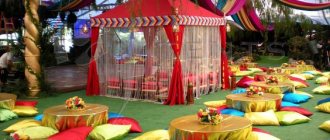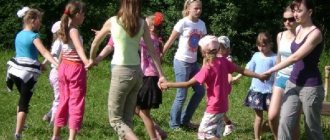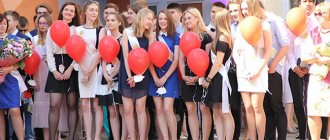The holiday that children in Rus' loved more than any other is Maslenitsa. A modern child is closer to other holidays, but you can always add one more. And if you explain to your children exactly how Maslenitsa is celebrated in Russia, then you will have the opportunity to have a great time together and at the same time get acquainted with the original Russian traditions. Most modern Russians associate the ancient holiday only with the burning of an effigy, but the celebration of Maslenitsa can be greatly diversified: with fun gifts, competitions, games, costumes and crafts.
When to celebrate Maslenitsa in 2021?
The date of celebration of Maslenitsa is migrating, since it depends on Easter. Every year Maslenitsa week begins differently: in 2021 from March 8th . The date of Maslenitsa is easy to calculate. It is enough to know when Easter will be this year and subtract 56 days from this number: 48 days of Lent and the week of celebrating Maslenitsa itself. This year Orthodox Easter is May 2, 2021. Accordingly, the last day of Maslenitsa (Forgiveness Sunday) falls on March 14th. And a whole week before that there will be Maslenitsa festivities, noisy fairs, delicious gatherings with pancakes, games and sleigh rides.
Treats
Of course, the main Maslenitsa dish is pancakes. However, they can be presented in a much more interesting way:
- Pancake bags. Place the filling inside to taste, then pull the edges together and secure with a toothpick or a sprig of herbs. You can put a coin inside several bags - a promise of happiness to the one who finds the surprise pancake.
- Openwork pancakes. Prepare pancakes that resemble an openwork napkin. This can be done by pouring the dough into the frying pan from a bottle with several holes punched in the lid.
- Pancake cake. Place a few pancakes in the base, then add the filling, another pancake on top, more filling, etc. This cake can be decorated with berries, cream, herbs, etc.
- Roses. First, put the filling inside, tie it, then cut the pancake into three parts and turn the top edges out a little so that they resemble rose petals. Be sure to put fresh herbs on the plate - the “leaves” of roses.
In addition, you can prepare pies with various fillings, waffle rolls, pancakes, etc. Suitable drinks include tea, fruit juice, jelly, and cocoa. It would be great if you can find a samovar, and the participants will be able to drink tea poured from a real samovar.
History of Maslenitsa: pre-Christian rites of welcoming spring
Maslenitsa was celebrated by our ancient ancestors, dedicating this holiday to the pagan god of the Sun (Yaril). Hence the main “edible” symbolism of Maslenitsa - a round pancake that looks like the sun. The Eastern Slavs believed in the forces of nature and most of all revered the daytime celestial body for its energy, filling all living things with its light and warmth. During the equinox, they held a solemn farewell to winter and began to invite spring to visit. The tradition of burning an effigy of winter on Maslenitsa is still preserved. In some regions, burning wooden wheels are launched from the mountain, representing the cult of the Sun.
After the baptism of Rus', Maslenitsa was tied to Easter and Lent. But its cheerful and riotous customs with folk festivals and hearty pancakes remained the main feature of this holiday. “It’s not Maslena without a pancake,” such a joke is still popular among the people.
Lyrics of songs for the Maslenitsa holiday
Song for children
Song No. 1
Song No. 2
Song No. 3
In principle, absolutely any songs can be played during the celebration of Maslenitsa, the main thing is that the people who are present at the holiday like them. But there are still a few that you definitely can’t do without. At the holiday, songs must be played to welcome and see off Maslenitsa. Without them, you won't be able to start and finish the holiday action.
If you decide to do without ancient ritual songs, then include modern ones, just opt for those that talk about pure love, homeland, family hearth, and, of course, about winter and holidays. And since guys usually meet girls on Maslenitsa, you can dilute the rest of the songs with some fun dance songs.
How to celebrate Maslenitsa: main traditions
Maslenitsa is often called Cheese Week, Meat Week , since it is not recommended to eat meat during this period. But dairy and flour products - please! Pancakes with various fillings, dumplings, cheese, butter, eggs, sour cream, caviar, fish - all these are mandatory attributes of the festive table for Maslenitsa. For a whole week, people visit each other, take part in folk festivities, dress up in folk costumes, sing and dance - after all, God himself ordered to have a lot of fun on Maslenitsa. In the old days, young people tried to choose a mate, send matchmakers, or even get married before Maslenitsa. After Forgiveness Sunday, Lent will begin and it is no longer possible to have fun, eat hearty food and have fun. “It’s not all Maslenitsa, but there will be Lent.”
The traditions of Maslenitsa are very light and pleasant: walking, eating pancakes and having fun, and everything is not without purpose. And so that spring comes soon. Burning an effigy of winter on the last day of the celebration is a bright and symbolic action. It was believed that everything old and bad goes away with the fire, giving way to the new and good. The ashes from the scarecrow were scattered over the fields so that there would be a good harvest that year.
Ditties for Maslenitsa: texts
Ditty No. 1
Ditty No. 2
Chatushka No. 3
Chatushkas are part of Russian culture, so it’s impossible to imagine seeing off winter without them. In this case, you will not be limited in the choice of repertoire and will be able to sing whatever you like. The only thing you have to consider is that they don't play well with electronic music. Therefore, it will be better if you make sure that folk melodies are used as musical accompaniment. An accordion or balalaika will perfectly complement the ditty.
Happy week: what to call it and what to do on Maslenitsa days
Each day of Maslenitsa has its own name and purpose, its own rites and rituals.
Monday, first day of Maslenitsa (March 8, 2021) – “meeting”. On this day, the first pancake was baked, which was left on the windowsill or given to the poor to commemorate the souls of deceased relatives. Children and adults invited guests to Maslenitsa, and mothers taught their daughters how to bake pancakes.
Tuesday, second day of Maslenitsa (March 9, 2021) – “flirts”. Day of mummers and matchmakers. On this Maslenitsa day, young boys and girls were looking for a suitable match so that they could get married after Easter.
Wednesday, third day of Maslenitsa (March 10, 2021) – “gourmet”. The day when you should go to visit your mother-in-law for pancakes. On this day, people were allowed to have a lot of fun, sing and dance, ride a sleigh, eat and drink. “A pancake or a wedge won’t split your stomach,” people said.
Thursday, the fourth day of Maslenitsa (March 11, 2021) - “take a walk” or Broad Maslenitsa. The celebration is in full swing, as they say, “on a grand scale.” In the old days, several sleighs were attached to a team and they rode around the village on such an improvised Maslenitsa train. Also on this day there are round dances, folk entertainment, snowball fights, and fist fights. One of the Russian traditions is the capture of a snow town. Adults and children build snow towers, and then adult participants are divided into two camps - cavalry and infantry. The former attack the snowy city, and the latter defend themselves with brooms.
Friday, the fifth day of Maslenitsa (March 12, 2021) – “mother-in-law’s evening.” On this day, sons-in-law treat their mothers-in-law with pancakes. It is customary to solemnly invite the wife’s mother to visit, and she can come not alone, but with her friends.
Saturday, sixth day of Maslenitsa ( March 13, 2021) – “sister-in-law’s gatherings.” On this day, the husband's sister came to visit the newlyweds with her family (if she was married). If the sister-in-law was unmarried, she came along with her friends.
Sunday, the last day of Maslenitsa (March 14, 2021) - “forgiveness Sunday”, “forgiveness day”, “kissing day”. The last day of Maslenitsa, when it is customary to ask forgiveness from all relatives, friends, neighbors, and then kiss and bow. It's time to say goodbye to Maslenitsa, fun and winter fun. On this day you can still enjoy the holiday to your fullest: dance in circles, dance, and ride in sleds. And then - go to the bathhouse to have a good steam and wash before Lent.
“Walk, people, Maslenitsa is at the gates!”
Characters Presenter 1st buffoon 2nd buffoon Winter, guests (six people)
Presenter. Hello, dear guests, we invite you, according to the ancient Russian custom, to celebrate Maslenitsa, spend the winter and greet the spring.
The buffoons run in.
1st buffoon. Oh-ho-ho, a-ha-ha! Look how many onlookers have gathered around!
2nd buffoon. And why aren’t people sitting at home, why did they come?
1st buffoon. Probably, there is nothing to do at home, they are tired of beating their heads, they were lying on the stove, so they came running to us for pancakes. Look, our presenter has prepared some pancakes, round, rosy, piping hot, just begging to be put into your mouth. Don’t you know what the occasion is for such a feast on the mountain?
2nd buffoon. I have no idea, but they smell great and look like the sun.
Presenter. I’ll tell you that the people gathered here for a reason, but to spend the winter and welcome the spring, to sing funny Russian songs and play games.
1st buffoon. Look who's coming towards us! It’s Zimushka herself coming towards us.
Winter. Hello people! Aren't you tired of the long winter? Maybe you should add some more frost and some snow?
Buffoons (together). We don’t need such joy, we are frozen to the bones, teeth are missing, we can’t wait for warmer days. Maybe you will give way to Spring?
Winter. I'll take a look and think about it. If you make me laugh, amuse me, maybe I’ll give way to Spring.
1st buffoon. Hey guys, let's have some fun with Zimushka. Come out, brave souls, show off your bravery, test your strength.
Presenter. In the old days, one of the funs on Maslenitsa was tug of war, let’s follow the tradition.
2nd buffoon. Whoever is the stronger of the guys, come out, don’t be timid! We quickly grab the rope, the one who pulls it will be glad. He will become the strongest and get the gift.
The rope can be pulled both individually and in teams. The main thing is that the strengths of the participants are approximately equal. This should be monitored by adult assistants to the presenter. Buffoons can help the competition participants, or they can “fool around” by pretending to help.
Presenter. Do you guys know why Maslenitsa was called Maslenitsa? This holiday came to us from distant pagan times; for this holiday they made a special stuffed animal from straw, which was dressed in women's clothing. All week they called her names, gave her pancakes, took her in a sleigh, and entertained her.
1st buffoon. We celebrate Maslenitsa, we promise a lot of things: rivers of sour cream, mountains of pancakes.
2nd buffoon. If only she would come sooner, cheerful, perky, wild, and not meek.
Buffoons (together). Farewell, people, with sadness, hello, worldly holiday.
Presenter. Indeed, Maslenitsa was the most fun and satisfying holiday in Rus'. People tried to ride down the mountains to their heart's content, play snowballs, take part in the construction and assault of snow fortresses, and take part in fist fights. I suggest testing your dexterity and dexterity in balloon fights.
The buffoons bring out balloons, put paper hats on the children’s heads, and blindfold them. The task is to knock the hat off the opponent's head with a ball. The first one to knock off the hat wins.
Winter. You made me laugh, let's now test your accuracy. How did you learn to throw snowballs during these winter months?
The buffoons select two competition participants and line up with them on the “fire” line; four buckets (boxes or hats) are placed a short distance from the line. Participants are given three tennis balls, and their task is to get into the bucket. Buffoons show “miracles” of accuracy. Only invited players are evaluated; the one who throws the most balls into the containers wins.
Winter. I see that the buffoons spent the winter in vain, they didn’t play in the snow, they didn’t move down the mountain. I’ll probably stay with you some more, treat you to snow and frost, and won’t let spring come.
Presenter. Wait, Winter, let's ask the guys how they spent the winter. Guys, was there always enough snow for skiing?
Children (in chorus). Yes!
Presenter. Have you always gone down hills quickly?
Children (in chorus). Yes!
Presenter. Winter! Thank you for the snowball, for the snow slides, for the skating rink and the fast ski track.
1st buffoon. Now make way for the Red Spring. She's just around the corner.
2nd buffoon. Maslenitsa will help us with this.
Winter. And where is your assistant?
Presenter. Now we will celebrate Maslenitsa. I invite brave craftsmen to become my assistants.
The presenter, in front of the children, together with her assistants, makes a doll from straw. You can make a small doll, and then take out a large stuffed animal made in advance.
1st buffoon. Are you our soul? Maslenitsa, sugar lips!
2nd buffoon. White body, silk shirt, morocco boots, beautiful princess, royal daughter.
1st buffoon. The braid is long, the ribbon is scarlet, the scarf is white, the eyebrows are black.
2nd buffoon. Come visit us in the wide courtyard, we’ll ride in the mountains and gorge ourselves on pancakes.
1st buffoon. We celebrate Maslenitsa and say goodbye to winter.
Presenter. Let's help Spring, stand in a round dance circle and sing a Russian folk song.
Children stand in a round dance and, together with the Skomorokhs, sing any Russian folk song (for example, “Like thin ice”).
1st buffoon. Let's hold a competition on knowledge of butter proverbs.
2nd buffoon. “The pancake won’t split your stomach.” I'm the first, I get the main prize.
1st buffoon. No, brother, wait, eat the pancake. We'll listen to the guys, and then we'll eat kalachi.
A competition for knowledge of proverbs begins. The competition is held in the form of an auction. Everyone names their proverb in turn, the one who names the last proverb wins. You can invite children to prepare for this competition in advance. If the children find it difficult, the presenter can name the first part of the proverb, and the children finish the second. Proverbs: “It’s not Maslena without pancakes”; “Ride in the mountains, lie in pancakes”; “Not life, but Maslenitsa”; “Maslenitsa is a mess, I’m saving money”; “At least pawn everything from yourself and celebrate Maslenitsa”; “It’s not all about Maslenitsa, there will be Lent too.”
Presenter. Maslenitsa lasted seven days.
1st buffoon. The first day is “Meeting”, we have already celebrated Maslenitsa. Let's move on to the second day.
2nd buffoon. The second day is “3 games”. Guys and girls ride down the hill, trying to get to know each other. Come on, come out into the circle and play ditties.
Presenter. In the old days, the best way to show yourself and watch others was to perform ditties. Who is the bravest and most talented?
A competition for performers of ditties is announced. The ditty competition can be thematic: on a school theme, on the theme of winter and Maslenitsa, or any ditties.
For example: Don’t look at me, you’ll break your eyes. I'm not from your village, you don't know me.
There are two flowers on the window: blue and scarlet. I'm a fighting boy. Although small in stature.
The presenter sums up the results of the competition.
1st buffoon. Winter lasts a long, long time, but Maslenitsa goes by quickly. The third day is announced - “Gourmand”.
2nd buffoon. What do people eat on Maslenitsa?
Children (in chorus). Pancakes!
Presenter. Right. Let's sing the Russian folk song “Pancakes”: “As during Shrovetide week, pancakes, cheese, and cottage cheese flew from the table - everything flew to the threshold! Like during Shrovetide, pancakes were flying out of the oven. We had fun, we had fun!”
Presenter. Now let’s play the Russian folk game “Frying Pan”, which was just played on Maslenitsa.
Up to ten children participate in the game. The players stand in a circle, hold hands, forming a round dance. A circle-frying pan is drawn with chalk at the very feet of the players. Everyone follows the line of the pan. The leader gives a signal, everyone stops and begins to pull their neighbors to the right and left to the line. The goal is to force neighbors to cross the line. Anyone who crosses the line ends up in a frying pan and is “baked.” After which everyone again quickly walks along the line in a circle. The winner is the one who has not been “baked” for the longest time.
1st buffoon. Thursday is the busiest day - “Revelry”.
2nd buffoon. Disperse, honest people, don't dust, path! Make way, people, open up, shoulder, let's measure our strength. Do you want to see a strange three-legged stallion? You'll see now.
There is a competition for dexterity. Several pairs are selected, each pair's legs are tied (the right leg of one to the left leg of the other). The pair on “three legs” runs to the turning flag and returns to the starting line. The first couple to arrive wins.
Presenter. Are you tired of having fun yet? Maybe we can give our heads a little work? I’ll read you riddles, and you prepare answers for me.
The presenter asks riddles on a winter and spring theme. You can find your own riddles or use ours. I was standing in the middle of the yard where the children were having fun, but the sun’s rays turned me into a stream. (Snowman) Early in the morning, I slowly inflate the red balloon, and when it’s released from my hands, it will suddenly become light around. (Sun) Without hands, but draws on glass. (Freezing)
Since Maslenitsa is a pagan, ancient Slavic holiday, it is possible, as an element, to introduce into the script a quiz on knowledge of Slavic traditions, customs, and rituals. We need to form teams and ask them questions. Whoever answers the question first gets a point.
1. Where did the expression “What is written in the race come from?” (Rod is a creator god. According to ancient Slavic ideas, at the birth of a person, his future fate is recorded in the book of Rod. This is where the expression “What is written in the family” came from).
2. Where did the expressions “Keep away from me!”, “Keep away from me!”, “Keep away from your tongue!” come from? (Chur is a deity who protected man and his goods from evil spirits. Therefore, in case of danger, they still remember this god and ask: “Chur, take care of me!”, i.e. “Chur, me!”. Whoever finds something and doesn’t want to share with anyone, asks: “Currently, mine!” If they say something bad to someone, in response you can hear: “Currently on your tongue,” and the evil wish will not come true.)
3. The name of which Slavic god is associated with the expression: “After the rain on Thursday?” (Perun is the god of thunder, the lord of heavenly waters, he was often prayed for rain. He had his own day of the week - Thursday. If you pray to Perun on this day, then the prayers were considered especially effective.)
4. What spirits did the ancient Slavs believe in? (Bolotnik is the spirit of the swamp, lives in a big house with his wife and children. Leads people into the quagmire. Bolotnitsa is a drowned maiden. Lives in the swamp, very beautiful. She seduces people and drowns them in the quagmire. Kudiyar (Chur) is a special spirit, guarding treasures and treasures hidden in the ground. Dvorovoy - the patron of the male yard. Kletnik - a spirit who lives in the pantry. At night he arranges an inspection of things, moves them from place to place. Lugovoy - the spirit of the meadows, helps mow the grass. Mokhovoy - a tiny green spirit or brown in color, lives in moss. Punishes those who pick berries outside of school hours. The barn is the spirit living in the barn. If someone dries bread during strong winds, the barn punishes him with fire. Field - the spirit of the fields. They made sacrifices to him in the form of eggs and young roosters. He appears in the guise of an old man in white robes. He helped the diligent and punished the lazy. Rye is a spirit that lived on strips of rye. Out of harm, he can weave several ears of rye, and then the field is considered cursed. A person can save the harvest decided to save rye at the cost of his own life. A barn is a spirit that lives in a barn. He looks after the cattle and maintains order in the barn. Leshy is the spirit of the forest.)
5. How to appease Leshy? (Thank you for the mushrooms, berries, leave a pie on the stump, damn it.)
6. Why did the ancient Slavs consider it unacceptable to greet or pass anything across the threshold? (The ancient Slavs believed that this was the border of the hut, between their own and alien worlds, inhabited and uninhabited.)
7. Where in the house does the brownie live? (Behind the stove.)
8. Name the ancient Slavic gods. (Perun is the god of thunderstorms in Ancient Rus'. He was considered the patron saint of warriors. Belbog is the god who lives in the heavens and rules them. An old man with a long gray beard in white clothes with a staff in his hand. Beles is the god of cattle breeding and wealth. Zembog is the god of the earth. Didiliya - the goddess of childbirth. Makosh - the goddess, patroness of women's work, spinning and weaving. Fire, another name Svarozhich, - the god of fire. Morozko - the god of winter and cold. Dazhdbog (Hors) - the god of the sun.)
Note: The last person to name God wins. Additional points can be given for describing the appearance or some features of the deity.)
9. The ancient Slavs had ritual dances performed at certain times. One of these dances has survived to this day. This ritual dance was dedicated to the Sun and was its symbol. Name this dance. (Round dance. The dancers form a circle - a symbol of the Sun and repeat its path across the sky. Thus, a magical rite of worship of the Sun is performed.)
The quiz can be completed with a joint round dance.
1st buffoon. It's time to announce Friday.
2nd buffoon. Day five - "Mother-in-law's evening." When visiting their sons-in-law, mothers-in-law would enjoy pancakes.
Presenter. Guys, do you know who a mother-in-law is, who a son-in-law is? Let's try to figure out who is related to whom. Who is a father-in-law, who is a sister-in-law, who is a brother-in-law, who is a father-in-law, who is a mother-in-law, who is a godfather?
Children answer the presenter's questions.
Presenter. Well done, you are well versed in the degree of relationship. Let's move on to the next day of Maslenitsa.
1st buffoon. Day six: “Sister-in-law’s get-togethers.”
2nd buffoon. On these days, family tea parties were held with the presentation of gifts.
1st buffoon. We can also give gifts to those who took the most active part in our holiday.
During all competitions and tasks, the winners are given small cardboard pancakes-tokens; at the end of the holiday, the number of tokens is counted and the winner is revealed.
Presenter. Maslenitsa ended with Forgiveness Resurrection. Everyone asked each other for forgiveness, and then burned the effigy of Maslenitsa and finally said goodbye to Winter.
Winter (who has been watching the events taking place all this time). Or maybe you'll change your mind again? Why do you need this Spring, it’s so fun, snowy, frosty, fresh with me!
1st buffoon. No, Zimushka, your time has passed.
2nd buffoon. Empress Maslenitsa, we boasted about you, ate pancakes and had fun! Your time has come, leave us!
Presenter. Well, guys, it’s time to say goodbye to Winter and burn Maslenitsa! Let's tell her in unison the words that the Slavs said a long time ago.
Children (in chorus). Maslenitsa is a deceiver, she brought me to fasting - she ran away! Maslenitsa, come back, show yourself in the New Year! Burn, burn clearly so that it doesn’t go out!
The buffoons carry the Maslenitsa effigy out of the hall, followed by Winter.
Presenter. Thank you for your attention, for your active efforts, for the fun, jokes, laughter. And there will be a reward for everyone! We invite you to have pancakes and a samovar.
After everything, you can go outside and really burn the Maslenitsa effigy. Have a round dance around a big fire or just take a walk together.
You can wear colored shawls or embroidered vests over street clothes.
How is Maslenitsa celebrated in modern Russia?
In modern villages and cities, mass festivities take place on Maslenitsa. Costumed characters in the images of buffoons and parsleys amuse people, adults and children participate in games and competitions, treat themselves to pancakes and sweets, rejoice and frolic in the open air. Folk celebrations take place in parks, national museums and central city squares. People are having fun from the heart: theatrical performances, round dances, songs and dances can be found at every step. And how many varieties of delicious pancakes, bagels, pies and dumplings you can try! You can’t count it at all! “It’s not life, but Maslenitsa,” people said.
The most common folk pastimes on Maslenitsa:
- Tug of war.
- Snow labyrinth.
- Races on stilts.
- Snow targets, snowball fight.
- Fist fights.
- Throwing felt boots.
- Burning an effigy of winter.
Games for a fun Maslenitsa holiday for adults and children
Maslenitsa games and fun
Games for children
Hot frying pan
A large circle is drawn on the ground, along the edge of which children stand in a row. On command, they raise one leg up and begin to jump on the other, trying to push their neighbor onto the makeshift frying pan. The one who could not resist and got inside the circle is eliminated from the game. The game continues until there is only one winner left.
Merry buffoons
Prepare several hats with bells in advance and distribute them to the children. Next, invite them to show the habits of animals they know. For example, they can show how a cat, bear, hare, pig or goose walks. Children should do all this to cheerful music. The person who tried the hardest can be given an inexpensive gift. Invite the rest of the participants to dance together wearing hats with bells.
Living picture
We divide the children into teams and invite them to come up with a simple plot for the picture. Then the teams take turns to pantomime what they have in mind. The other team must guess what is shown in the living picture. At the end of the game, all participants receive prizes. Some for the best plot, others for the ability to quickly guess.
Pushinka
First, let's prepare the inventory. Take a piece of cotton wool and fluff it well. When this is finished, we place the children in a circle and begin the game. Children should take turns throwing a piece of cotton wool to each other, not letting it fall to the ground. The one who does not have time to throw the fluff gets a forfeit. You can invite your child to sing a song, recite a poem, or simply do something interesting. This game can continue until all the children try themselves as artists.
Broom
Skittles are placed like a snake in the snow. They must be placed at a distance of at least 30 centimeters from each other. Then the child sits on a broom and begins to run around the pins with the same snake. Everything must be done as quickly as possible, but without knocking down a single pin. If you want to complicate the task, then let not one, but two kids sit on the broom.
Games for adults
Games for adults
Tug of War
A strong rope is laid on the ground, tied in the middle with a red ribbon. The men break into teams and begin to pull the rope towards themselves. The team that wins is the one that gets the opponents over to its side.
Strongmen
Men should be divided into groups by weight category, and then each team member in turn begins to lift the weight with his left and right hand. When all participants complete the task, all lifts are summed up and the winner is declared. Such a competition can be slightly complicated and offer to lift the weight for a while.
Broom Throwing
In the snow, mark with a red line a path along which you can run and a line beyond which you cannot go. A man or woman will have to take the broom by the wooden handle and throw it as far as possible from a running start. This game can be either solo or team.
Relay for adults.
Place two tables and place compote, a bowl of prepared pancakes and an empty glass on them. Divide people into teams and start the relay race to the music. The first participant should run up and pour compote into a glass, the second should run up and drink what was poured, and the third should eat the pancake. The team that runs out of food first wins. If desired, the compote can be replaced with warm tea or any strong drink.
Holiday hockey
This game can be played both on ice and on an ordinary field, the main thing is that there is snow on it. Participants of both teams are given felt boots, insulated mittens and regular sports equipment. The game is played according to the same rules as regular hockey, except that the rounds can be made shorter. The winner is the team that wins the most rounds.
Best cook
This competition will appeal most to women. They will have to bake as many pancakes as possible in a certain time, prepare the filling for them, wrap it and serve the finished dish. The one who does it best will be declared the winner.
What not to do on Maslenitsa?
As mentioned above, during Maslenitsa week it was not allowed to eat meat dishes. The only exception was Forgiveness Sunday, when it was possible to taste meat before fasting. Another ban on Maslenitsa is that you cannot be sad, quarrel or be offended by loved ones . It was believed that if you don’t have fun during Maslenitsa week, spring will not come soon. And the one who was sad all the holidays will face misfortune.
You cannot be stingy and greedy on Maslenitsa - but on the contrary, you should treat your friends and acquaintances to pancakes and feed the hungry. You cannot welcome guests in an uncleaned house. Maslenitsa is a time to restore order and cleanliness. You cannot refuse if you are invited to visit, and if you come, then it is forbidden to overeat and drink a lot. On the last day of Maslyanaya, you cannot refuse if someone sincerely asks you for forgiveness. “God will forgive” should be the answer.
Poems for celebrating Maslenitsa
Verse No. 1
Verse No. 2
Verse No. 3
Not a single winter celebration is complete without funny poems. And if now they are most often recited exclusively at official events, then before everyone knew Maslenitsa poems, both the youngest and the oldest. With their help, people celebrated Maslenitsa, praised their pancakes, invited guests to their house and cheered them up.
Therefore, if you want your family holiday to be as identical to the old one as possible, then be sure to make sure that your household members learn at least one poem.
Signs for Maslenitsa
During Maslenitsa, people always tried to bake as many pancakes as possible - for wealth and a good harvest. If the pancakes turn out smooth, beautiful and golden, the year will be easy and successful. And if they burn and stick together, expect misfortune. Getting rid of unnecessary and old things on Maslenitsa is a good omen. “On Maslenitsa, forgive the old and bring the new into life.”
People's memory also preserves many signs indicating the weather and the future harvest.
- Frosts during Maslenitsa week mean a rich harvest and a warm summer.
- Rain on Maslenitsa means a good mushroom harvest.
- A lot of snow - for a warm and early spring.
- Icicles - for a rich and satisfying year.
SMS congratulations on Maslenitsa
SMS congratulations on Maslenitsa
If you want your message to look like a festive one, then be sure to dilute it with cheerful emoticons. Believe me, even a small sun or snowflake will make the printed words more pleasant and warm.
So:
- Hello, beloved girlfriend. The sun has already risen, which means it’s time to bake pancakes, eat them and have fun. I wish this day brings you a sea of joy and an ocean of delight. Be happy and always smile.
- Please accept congratulations on Maslenitsa week. Let her be cheerful, bright, kind and bring a fresh spring breeze into your life, with which great happiness will come to your home.
- Congratulations on Maslenitsa, my beloved sister. Always be beautiful, kind and cheerful. Let bad people and even the smallest troubles never appear in your life again from today.
- Always be cheerful, fresh and beautiful like the winter beauty Maslenitsa. Enjoy life and continue to bloom! I love you very much, my dear man, and I want you and I to celebrate more than one spring.
- Happy winter's sunniest holiday to you. I wish your life to be long, serene and happy, and that you always smile as much as you do today. Happy Maslenitsa to you!
![How to hold a bachelorette party before the wedding in [year]: original and fun ideas](https://chinaunionmarket.ru/wp-content/uploads/kak-provesti-devichnik-pered-svadboj-v-year-godu-originalnye-i-330x140.jpg)









